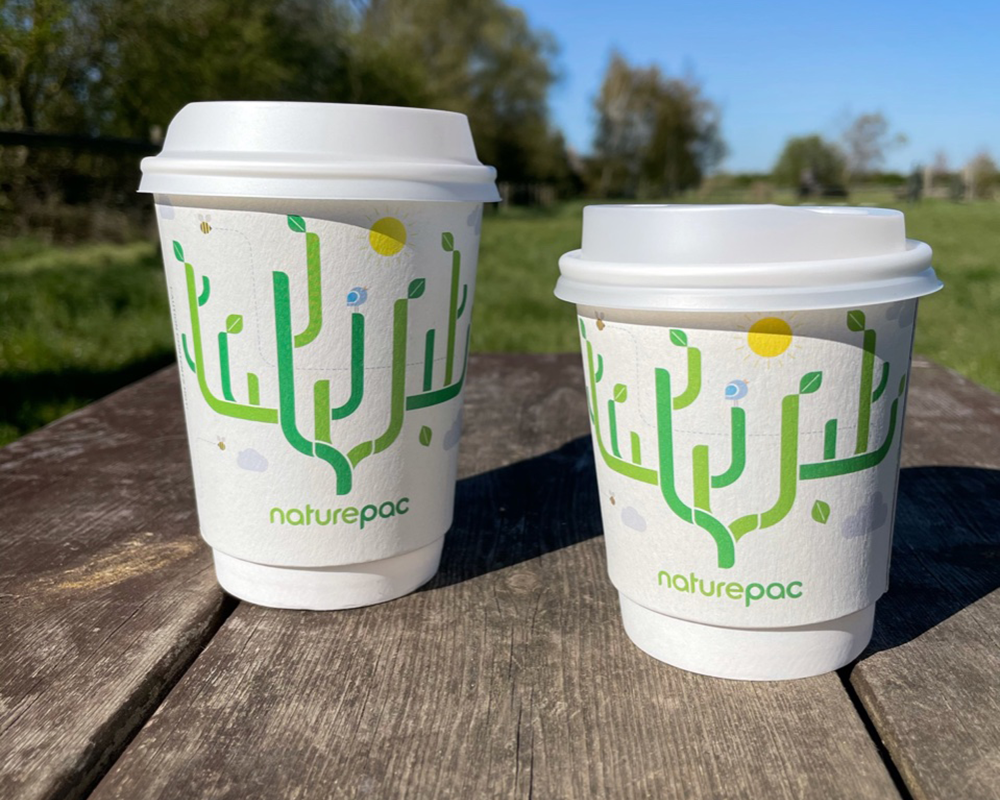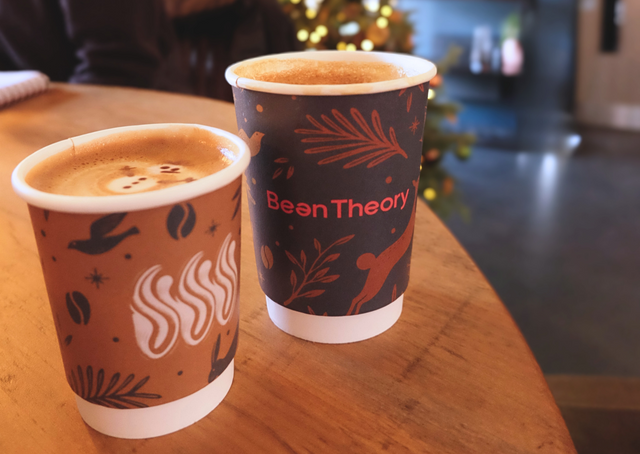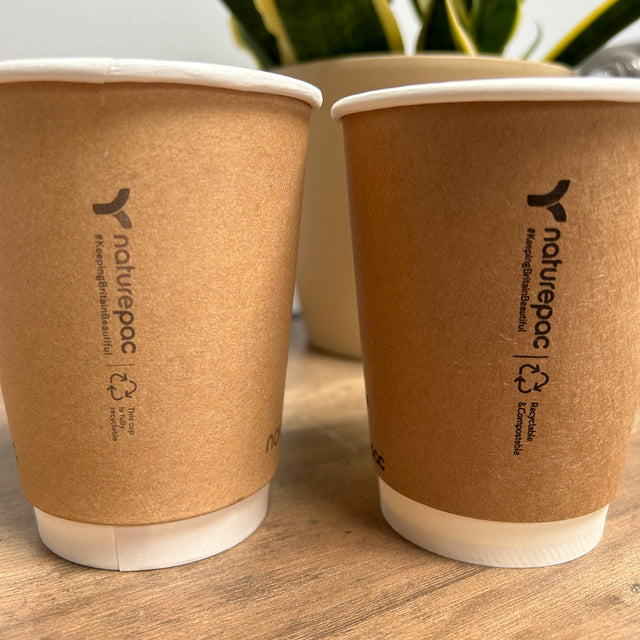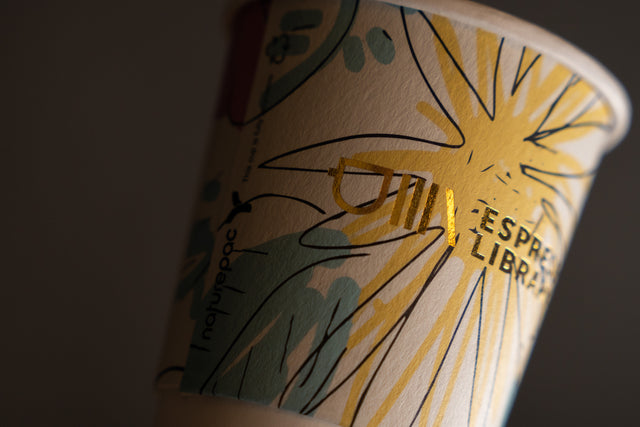
My wife and I managed to get a day off together last week. It was a lovely day, sun shining, so we thought we would go into Cambridge and have a quiet walk around the Backs. For anyone who doesn’t know, this is an area of parkland / green space behind the Colleges of Cambridge University. On the way we popped into one of our customers, Fitzbillies, to pick up coffee, tea and their famous Chealsy Buns.

Now, as a packaging supplier and someone who makes it their business to know how packaging should be disposed of, I might notice things that other people might find odd, like what sort of bins are in the parks we walk in. Cambridge council and the University has done a great job of keeping the Backs and the city clean. One reason for this is every couple hundred meters there were four clearly marked bins; two for general waste and two for recycling.

The reason I am mentioning this at the top of a blog about NaturePac’s journey so far is to help explain some of the changes we have made recently and to help tell you about our goal in this ever-changing world of packaging and waste disposal...
Since NaturePac’s creation by Evolution Packaging Products back in 2018, we have never shied away from explaining what we are doing, why we are doing it, and the fact that what we believe is the best solution now may not be the best solution in the future. Evolution Packaging created NaturePac to be a voice for Sustainable Packaging. Back in 2018, we believed the very best option we had for food-to-go packaging was Compostable Packaging for a number of reasons we have explained in previous blogs. However, back in May 2019, I wrote a blog explaining that although Compostable Packaging was the best we had (and in many cases still is), it wasn’t the end answer.
My wife and I’s walk in Cambridge helps to explain why... If I was carrying a Compostable cup with a PLA liner, putting it in a recycling bin would not be the right thing to do. This is because wastepaper recyclers do not have the facilities to process these or standard PE lined cups resulting in them being rejected. This means my Compostable cup needs to go in the general waste bin to be either incinerated (waste to energy) or sent to landfill.
A PLA lined cup is still more sustainable than a standard PE lined cup but needs to be Industrially Composted at the end of its life. The problem here is that there are a limited number of this type of facility within the UK, which can make correct disposal problematic.
If I were carrying a cup which could be recycled with normal wastepaper my choice of disposal is easy and readily available. I can just put it in the normal recycling bins throughout the city, or if I took it home, I could put it in our recycling bin at home.
Investment by the UK government and waste management companies tend to be focused more toward recycling than Industrial Composting (which can take packaging), and so at present it makes sense that our products can fit into this system to ensure as much packaging as possible gets recycled. Recycling tends to put less strain on the environment as we are converting a waste product back into a useful product, cutting down on the amount of new material needed. Recycling is also the main reason waste management companies divert waste away from landfill. Recycling is sustainable.
At NaturePac we educate ourselves as much as possible so we can offer you the best choices of packaging for your business. We believe the very best choices we have at the moment are led by how easy it is for the consumer to dispose of the packaging responsibly (and how the packaging protects your food products). We feel the best and most accessible choices for disposal are Kerbside Recycling and Home Composting.
This why we are trying to give you a Kerbside Recyclable or Home Compostable option for everything in our range. For some items this is not possible and so an Industrially Compostable option is the best we have currently.
For most of our Kerbside Recyclable options we have gone one step further. We have selected items which already contain a high percentage of post-consumer recycled content (e.g. our Recycled PET Smoothie Cups, Pint Cups, and Salad Bowls). This means they contain much lower levels of virgin PET and in some cases (the salad bowl), they are made from purely recycled materials.

For one of the essentials for most food-to-go businesses, the Double Wall Cup, we have also given you a choice... We are proud to launch our new NaturePac Fully Recyclable Double Wall Cup. This new cup has the revolutionary EarthCoat liner. This is a mineral enriched liner which means it uses 40-51% less plastic than Polythene (PE) lined or Polylactic Acid (PLA) lined cups. However, the most important feature of this cup is it is Certified to be recycled along with normal wastepaper!

The EarthCoat liner is designed to be easily separated from the paper fibres within existing paper recycling processes. The paper fibres can then be re-processed into another useful product.
The New NaturePac Fully Recyclable Cup can be put into any recycling bin where you would put normal wastepaper and card. To help ensure the cup gets recycled, we have printed a recycling message on all the cups to help both the consumer and waste management companies do the right thing.
NaturePac is here for the long term. This will mean that our offering to you will evolve over time when new technologies and processes become available. One thing you can count on, NaturePac will always give you the very best options and information we have in an unbiased and unfiltered way.
Thank you very much for taking the time in reading this.
We will be posting another blog very shortly which gives you more information on the materials we are currently using throughout our range and how best to dispose of them.




